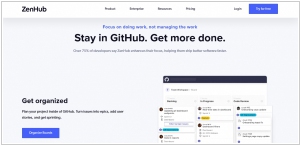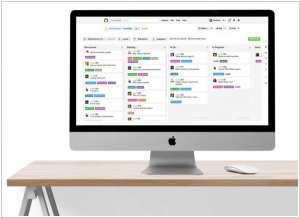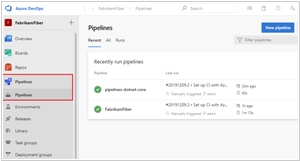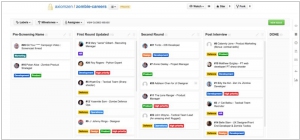Azure DevOps vs ZenHub
July 27, 2023 | Author: Michael Stromann
Azure DevOps and ZenHub are two popular tools that cater to different aspects of the software development process. Azure DevOps, developed by Microsoft, is a comprehensive application lifecycle management platform that provides version control, continuous integration and delivery, project tracking, and collaboration tools. It offers seamless integration with other Microsoft products, making it a robust choice for teams heavily invested in Microsoft technologies. On the other hand, ZenHub is a specialized project management tool designed specifically for GitHub, providing enhanced Agile project management capabilities. It integrates directly into GitHub's interface, adding features like task boards, burndown charts, and release planning, making it an excellent option for GitHub-centric teams looking to streamline their development workflow within the familiar GitHub environment.
See also: Top 10 Source Code Management tools
See also: Top 10 Source Code Management tools
Azure DevOps vs ZenHub in our news:
2021. Project management service ZenHub raises $4.7M

ZenHub, the project management service focused on GitHub integration for development teams, has successfully raised a seed funding round of $4.7 million. In addition to this achievement, the company has recently introduced its latest automation feature. This new feature aims to streamline the planning of development sprints, a critical aspect of the Agile development process that often consumes significant time and effort. By automating this process, teams can allocate their resources more efficiently towards actual development work. Furthermore, ZenHub has plans to develop an additional feature that automates certain aspects of the software estimation process. This upcoming tool will assist teams in assigning story points to routine action items, enabling more focused discussions on contentious issues.
2015. ZenHub connects its project management service to GitHub Enterprise

ZenHub, a platform designed to assist engineering teams in managing their GitHub projects using intuitive drag-and-drop task boards similar to Trello, was initially exclusively available for regular GitHub accounts. However, a recent development has expanded its accessibility. From now on, enterprise users who utilize the on-premise GitHub Enterprise service can also leverage the capabilities of ZenHub. This enterprise version of ZenHub distinguishes itself as one of the pioneering collaboration and project management services that seamlessly integrates with GitHub Enterprise. GitHub, along with Git as a whole, has been rapidly embraced within enterprise environments. Consequently, several project management services have emerged in the market, including startups like waffle.io (which also supports GitHub Enterprise) and various tools offered by Microsoft and Atlassian. What sets ZenHub apart is its direct integration with GitHub Enterprise, eliminating the need for developers to constantly switch between multiple disparate tools.




